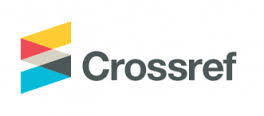The effectiveness of Vygotsky's generative learning strategy in building concepts at the level of achievement and retention of learning impact in the teaching strategies course for fourth-year female students majoring in child education
DOI:
https://doi.org/10.59759/educational.v4i3.1081Keywords:
Vygotsky's Strategy, Generative Learning, Achievement, Learning Retention, Child EducationAbstract
This research aimed to investigate the effect of the generative learning strategy on constructing concepts to improve the achievement level of female students majoring in child education in the teaching strategies course, compared to the traditional method. The research sample consisted of (48) female students in the second semester of the academic year (2024-2025). The experiment was randomly assigned to two equal groups: a control group (19) student who studied according to the traditional method, and an experimental group (29) student who studied according to Vygotsky's generative learning strategy. The number of test items was (50) multiple-choice items. The research results revealed statistically significant differences between the average scores of the sample members on the achievement test in favor of the experimental group. The results also demonstrated the presence of an effect size for the persistence of the learning effect. In light of the results, the research recommended the use of Vygotsky's generative learning strategy in constructing and generating concepts in the teaching strategies course for female students majoring in child education.
Keywords: Lev Vygotsky's strategy, generative learning, achievement, learning retention, teaching strategies.
Downloads
References
- Andy, B. (2011). Vygotsky on the Development of Concepts.of Concepts. A Critical Approach.Chapters: 13&14.
- Aulia, M. I. T. (2017). Teaching Reading Skills in light of (Vygotsky’s) Social Constructivist Theory Case Study at Palangkaraya State Islamic University. Al-Ta’rib. (M. I. Aulia, Ed.) Journal Pendelikon Bahasa Arab Dan Kebahasaaraban, 5(2), 116-125.
https://e-journal.iain-palangkaraya.ac.id/index.php/tarib/article/view/771
- Barrs, M. (2022). Vygotsky the Teacher: A Companion to his Psychology for Teachers and Other Practitioners. 52 Vanderbilt Avenue, New York: Routledge, Taylor & Francis Group.
- Black, B & Pope, T. (2008). Development Psychology Incorporating Piaget’s and Vygotsky’s Theories in classrooms. Journal of Cross-Disciplinary Perspectives in Education, 1(1), 59-67.
https://www.people.wm.edu/~mxtsch/Teaching/JCPE/Volume1/JCPE_2008-01-09.
- Carr, M. & Lee, W. (2012). Learning stories: Constructing earner identities in early education. London, England: Sage Publications Ltd.
https://www.google.jo/books/edition/Learning_Stories/GFeSusK9m_cC?hl=ar&gbpv=1&dq.
- Daniels, H. (2016). Vygotsky and pedagogy. Routledge Education Classic Edition, Taylor & Francis Group.
https://www.book2look.com/embed/9781317208440.
- Dianti, A. Yensy, N, A. & Rusdi, R. (2021). Improve of Student Mathematics Learning Outcome on Polyhedral Topic by Appling Generative Learning Model in the Class. Journal of Physics: Conference Series, 1731(1), 12-45.
https://www.researchgate.net/publication/348484376_Improvement.
- Eun, B. (2019). The zone of proximal development as an overarching concept: A framework for synthesizing Vygotsky’s theories. Educational Philosophy and Theory, 51(1), 18-30.
https://www.tandfonline.com/doi/full/10.1080/00131857.2017.1421941.
- Jawad, L. Raheem. M. & Majeed, B. (2021). The Effectiveness of Educational Pillars Based on Vygotsky's Theory in Achievement and Information Processing Among First Intermediate. Class Students. International Journal of Emerging Technologies in Learning (IJET), (16(12), 4-15.
https://online-journals.org/index.php/i-jet/article/view/23181/9405.
- Lianrui, Y. & Kate, W. (2016). Second Language Classroom Reading: A Social Constructivism. Approach Dallam the Reading Matrix, Tecnologies and the Digitals Learner, (6)3, 364-372.
https://www.readingmatrix.com/articles/yang_wilson/article.
- Moch, M. (2016). Menyingkap Strategi Pembelajaran Bahasa Arabdalam Pemerolehan Pengetahuan. Jurnal. iainbanten..ac.id/index.php/al-Ittijah/ article/…/1, diakses.
- Swati, N. (2020). Constructivist approach of Vygotsky for Innovative Trends in Learning and Teaching. International Journal of Advanced Academic Studies, 2(1), 349-353.
https://www.allstudyjournal.com/article/662/3-4-44-962.
- Smidt, S. (2009). Introducing Vygotsky: A Guide for Practitioners and Students in Early Years Education (First Edition, Ed). London: Taylor & Francis Group E-Learning Book Published. Retrieved from.
https://doi.org/10.4324/9781315824185
- Taber, K. S. (2020). Mediated Learning Leading Development—The Social Development Theory of Lev Vygotsky. In B. Akpan, & T. J. Kennedy (Eds.), Science Education in Theory and Practice, 277-291.


